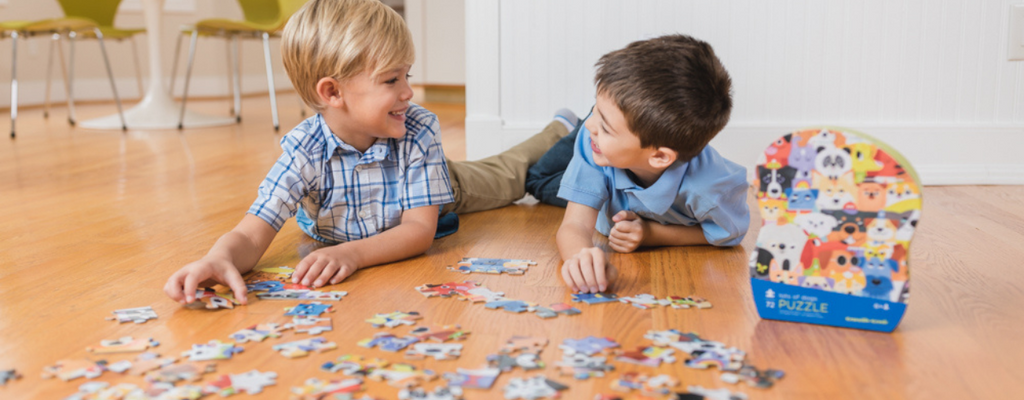
Jigsaws puzzles have traditionally been viewed as a fun way to pass time and relax. However, a growing body of research suggests that completing jigsaw puzzles has numerous health benefits too. They not only provide an important opportunity to unplug but also enhance cognitive skills and development for everyone from toddlers right through to seniors.
Let’s explore what the experts say!
Short term memory
Solving jigsaw puzzles encourages kids and grown ups to hold visual images in their memories. Doing a puzzle reinforces brain connections, improving mental speed and thought processes.
Left and right sides of the brain
Piecing together puzzles is considered a complete brain exercise, as it uses both sides of the brain. The left brain is logical and works in straight lines, the right brain is creative and intuitive. When you complete a jigsaw puzzle both sides are engaged at the same time, providing a mental workout that improves problem solving skills and increases cognitive function.
Meditation Tool and Stress Relief
Focusing on one task for an extended period of time, without other thoughts entering your head is a kind of meditation. When doing a puzzle the stress of everyday life disappears and is replaced by sense of peace and tranquility.
Visual-Spatial Processing
When completing a puzzle you need to look at individual pieces and figure out where they fit in the big picture. Is it the right shape? How does it fit? What happens when you turn it around? These mental configurations are an important part of visual-spatial skills. Repeating these tasks over time can improve map reading, the ability to learn dance moves and even finding things in a messy room.
Connecting with Family
Starting a jigsaw puzzle and keeping it set up on a table provides an opportunity for the whole family to join in. It’s also a great way of starting conversations with kids while working on a shared task.
Emotional Benefits
Working on puzzles teaches perseverance, self-confidence, and discipline. By working on puzzles, children and adults learn the satisfaction and pride of completing a project with their own hands. At the same time understanding that not everything is instantly achieved by the press of a button.
Delaying Dementia
Medical studies have shown that keeping your brain active through jigsaw puzzles and other problem-solving activities can delay symptoms of dementia and Alzheimer's disease.
From 2-piece puzzles for toddlers, large format floor puzzles for pre-schoolers, through to the fabulous 1000 piece World puzzle suitable for the entire family, Crocodile Creek jigsaw puzzles help guide child development.
